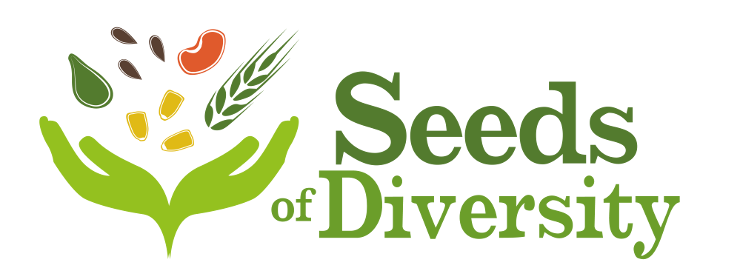Diversity of plants and animals is very important. It makes living things adaptable. It allows wild and domesticated species to withstand threats like diseases, climate changes, pests, and other unpredictable conditions. With enough variation in a group, there will always be come individuals that are naturally suited to survive and can thrive under any changing situation.
Food biodiversity is a key ingredient in creating a secure and sustainable food system. Diversity in plants also gives us a "treasure chest" of options for raising the healthiest and most productive crops. No matter what changes happen in our food system, we will always be able to adapt if we have enough genetic diversity.
So what's the problem?
The problem is that plant genetic diversity is disappearing. Fast. Like the erosion of a building's foundation, this "genetic erosion" threatens to destroy the system of food and farming that has been built on plant genetics for over 10,000 years. There are still thousands of varieties to choose from, but the vast majority of them are endangered. Hundreds become extinct every year.
Today, only a tiny fraction of Canada's crop genetic diversity is available to farmers. Most varieties are forgotten and all but abandoned in seed banks. Of the 7,098 apple varieties documented as having been in use between 1804 and 1904, for instance, about 86% have been lost. Similarly, 95% of the cabbage, 91% of the field corn, 94% of the pea, and 81% of the tomato varieties no longer exist.
Did you know:
75% of global food biodiversity has become extinct in the past 100 years.
60% of the remaining gene pool of crop plants is inadequately conserved and studied.
90% of the remaining gene pool of crop plants is not being used commercially.
All of our cultivated plants depend on human care. They don't grow in the wild, only in gardens and farms. That means if nobody grows a particular variety and saves its seeds, that variety becomes extinct forever.
A century ago, millions of seed-saving gardeners and farmers kept our plant varieties alive. They maintained thousands of "heritage" or "heirloom" varieties as part of traditional agricultural practice. But in modern times, people stopped saving their own seeds, leaving the job up to seed companies and gene banks. Unfortunately, there are only about 250 seed companies in North America, and only a handful of people working at government seed banks. The work of millions of ordinary people just can't be done by a relatively small number of professionals, however skilled and well-equipped they may be.
Biodiversity Builds Security
Throughout the world, people rely on cultivated plants for their food. Even food that comes from animals – meat, milk, and eggs – depends on cultivated plants for the animals to eat. But in Canada, and around the world, the food system is constantly changing. We are going to need a diverse, vibrant and regionally-adapted gene pool to draw on, to adapt to changes in -
- climate
- pests and diseases
- nutritional needs
- technology
- growing practices
- energy costs
Biodiversity Builds Opportunity
The best local and regional foods can only be grown with seed varieties bred for those regions. Many Canadian-bred varieties are no longer available commercially. Most seeds are produced overseas and traded through a global wholesale system. Since Canadian agriculture is a relatively small market, the global system does not provide our growers with our home-bred seed varieties.
This has contributed to a decline in Canada's food self-sufficiency. We have become dependent on imported produce, and we have all but forgotten the Canadian and local varieties that fed local markets only a few decades ago.
We can restore agricultural productivity in marginal, coastal, and northern areas by restoring the regionally-adapted varieties that originated and thrived there, and by selectively improving new varieties from those invaluable genetics.
We need gardeners to save seeds! Join Seeds of Diversity to participate in our annual seed exchange, or adopt a variety in our seed library.
